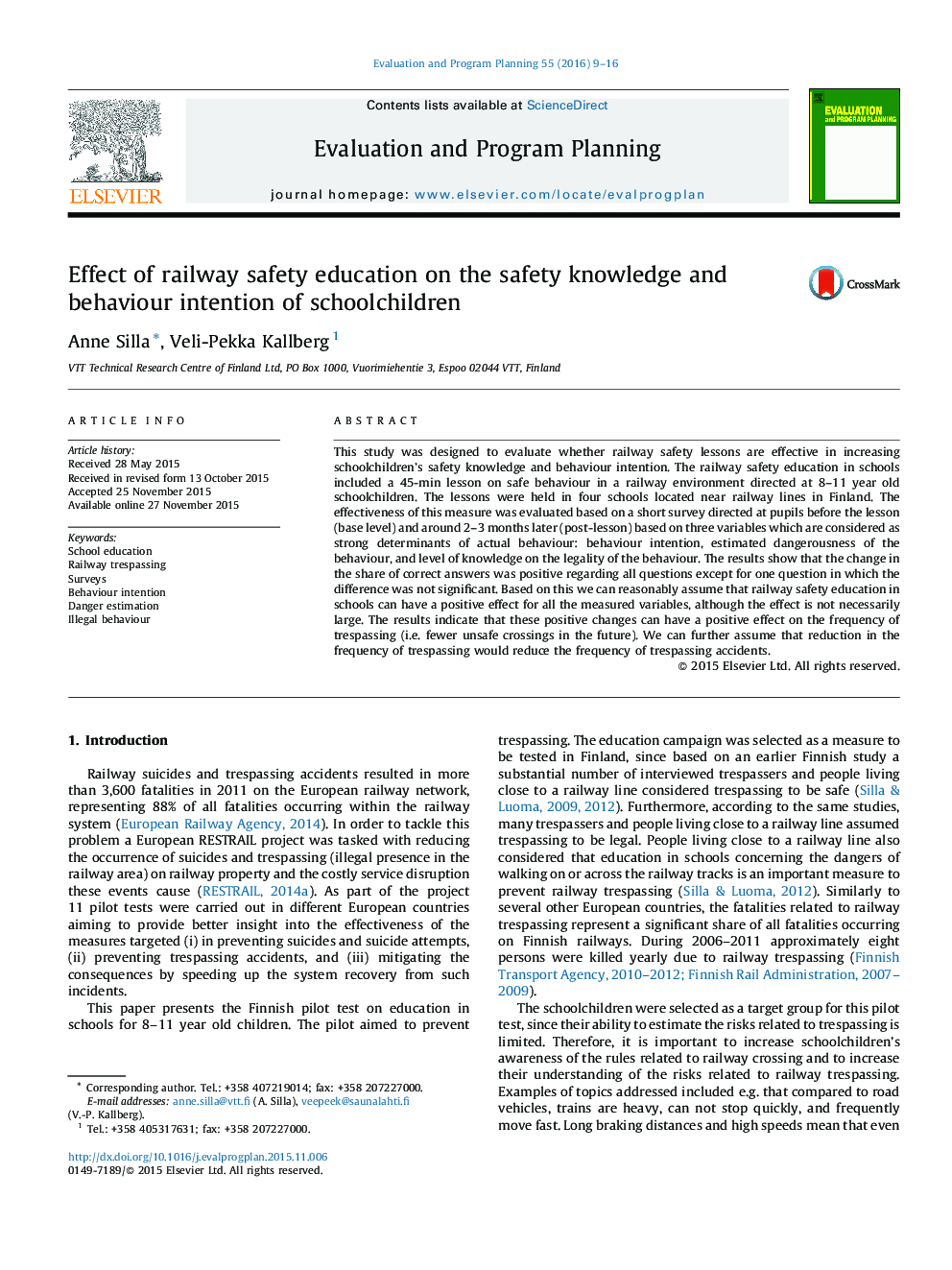| Article ID | Journal | Published Year | Pages | File Type |
|---|---|---|---|---|
| 6792827 | Evaluation and Program Planning | 2016 | 8 Pages |
Abstract
This study was designed to evaluate whether railway safety lessons are effective in increasing schoolchildren's safety knowledge and behaviour intention. The railway safety education in schools included a 45-min lesson on safe behaviour in a railway environment directed at 8-11 year old schoolchildren. The lessons were held in four schools located near railway lines in Finland. The effectiveness of this measure was evaluated based on a short survey directed at pupils before the lesson (base level) and around 2-3 months later (post-lesson) based on three variables which are considered as strong determinants of actual behaviour: behaviour intention, estimated dangerousness of the behaviour, and level of knowledge on the legality of the behaviour. The results show that the change in the share of correct answers was positive regarding all questions except for one question in which the difference was not significant. Based on this we can reasonably assume that railway safety education in schools can have a positive effect for all the measured variables, although the effect is not necessarily large. The results indicate that these positive changes can have a positive effect on the frequency of trespassing (i.e. fewer unsafe crossings in the future). We can further assume that reduction in the frequency of trespassing would reduce the frequency of trespassing accidents.
Keywords
Related Topics
Health Sciences
Medicine and Dentistry
Public Health and Health Policy
Authors
Anne Silla, Veli-Pekka Kallberg,
